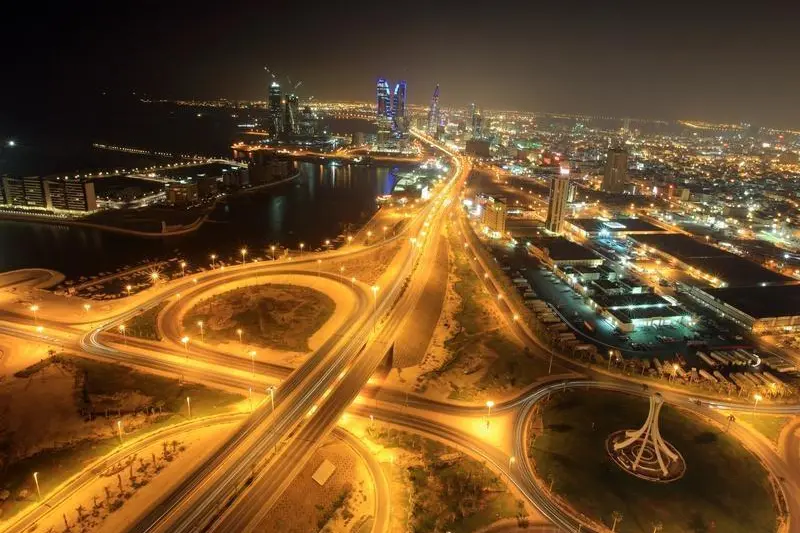PHOTO
MORE people could be lured into using Bahrain’s public buses if the transportation system is revamped, councillors believe.
This calls for increased focus on reliable services, additional bus stops and routes, said Southern Municipal Council members.
A proposal for a five-year action plan, presented by the council’s services and public utilities committee chairman Khalid Shajira, has been approved unanimously during the council’s final meeting of the term, at the Southern Municipality Complex in Riffa.
It has now been referred to Municipalities Affairs and Agriculture Minister Wael Al Mubarak to forward to Transportation and Telecommunications Minister Mohammed Al Kaabi for review.
The already popular service, which has benefited more than 70 million passengers since it was introduced in the 1970s, will soon have to compete with the proposed new metro system, as well as an increase in private car use.
“Public transport is a vital service in the country that has seen a huge transformation since it was introduced in the 1970s,” said council chairman Abdulla Abdullatif, who is one of three councillors endorsing Mr Shajira’s proposal for debate.
“We are interested in keeping this service running for future generations through a five-year futuristic vision or blueprint that would see more bus stops and stations built or allocated, more buses introduced to the fleet, and even more reliable arrival and departure timings.”
The buses are run by Bahrain Public Transport Company, a joint venture between the UK’s National Express and Ahmed Mansour Al Aali. It took over operations in 2015 and is set to continue operating the service until 2025.
New comfortable buses with free WiFi were an instant hit and around 150 buses were also designed to accommodate wheelchairs and passengers with restricted mobility issues.
According to latest data by the Transportation and Telecommunications Ministry the total public bus ridership reached 11,728,080 last year, while the total ridership from February 2015 until December last year reached 89,227,838.
The council, alongside Bahrain’s two other councils and the Capital Trustees Board, are now planning to meet with the ministry and the company over future arrangements to take the public service forward.
“Things could be done better than they are being done currently,” said Mr Abdullatif.
“The issue is not with the company, it is working way above the deal given to it by the Transportation and Telecommunications Ministry,” he added.
“There are limited routes, insufficient bus stops that has forced bus stop markings on the road, and people still believing that the service is unreliable.
“Someone told me to check out the trip to and from Bahrain International Airport, which I did, and it was reliable and affordable, but I had to check the schedule a day earlier.”
Meanwhile, Mr Shajira agreed with his chairman, but said the main reason behind the proposal is that some bus stops were now in the middle of the road.
“The original bus stops have not changed place for 50 years, despite road expansions and an increase in urbanisation,” said Mr Shajira.
“Also, the bus stop marking on the road is not a solution and is contributing to numerous accidents, and this issue needs to be properly addressed.”
Contract
“Hopefully, whatever we may get as a plan for the upcoming five years, will certainly take the public sector to higher grounds.
“We are seeking renewal of the company’s contract, which is set to expire next year, as their input is vital to the futuristic vision the ministry will have to come up with.”
The fare is 275 fils for a single ticket in the GO Card for all passengers for any single trip, no matter how long it is, and 700 fils for daily use. Weekly tickets are BD3 and monthly BD12.
MPs agree that the current operator has already introduced some interesting services like the Bahrain International Airport express service called ‘Airlink’ which runs every 20 minutes to Manama but would like to see more.
“Why not expand to have it cover King Fahad Causeway or Khalifa Bin Salman Port too?” asked Strategic Thinking Bloc president Ahmed Al Salloom, adding that free WiFi and reasonable fares have been instrumental in attracting passengers.
“Despite operational expenses going up, the company has maintained excellent on-board services,” he said.
“The issue is now more about better accessibility of the services, especially for those living in villages being able to reach the nearest station or bus stop with ease,” he added.
“Timings sometimes vary, and this needs to change as punctuality really counts. A minute of tardiness is tardiness.
“But even when the metro gets built in the next few years, bus services will continue being a cheaper and viable option. It all depends on what’s next to keep and attract more passengers.”
Punctuality problems, one driver told the GDN, were sometimes out of the hands of the operator because of heavy traffic and a lack of ‘bus only’ lanes on highways and ignorant motorists parking their cars in bus stops blocking entry and exits.
Solar panels have been installed at several bus stops around the country as part of plans for Bahrain to achieve sustainable development.
Copyright 2022 Al Hilal Publishing and Marketing Group Provided by SyndiGate Media Inc. (Syndigate.info).





















